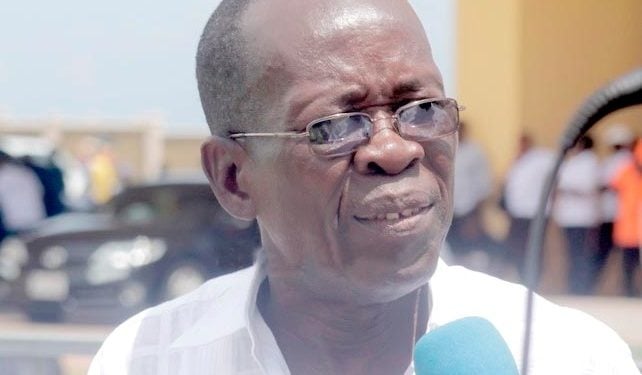Mr. Abraham Koomson, the Secretary General of the Ghana Federation of Labour (GFL), has voiced serious concerns regarding the state of democracy in Ghana under the ruling New Patriotic Party (NPP). He asserts that the nation is experiencing a democratic recession, significantly attributed to the leadership of President Nana Addo Dankwa Akufo-Addo and Vice President Dr. Mahamudu Bawumia. Koomson elaborated that many democratic institutions are witnessing a deterioration of core values, with civil liberties under threat, the rule of law weakened, and a surge in authoritarian governance. These issues present a grim picture of political regression over the past eight years, leading to a dispiriting environment for democratic engagement in Ghana.
According to Mr. Koomson, the current administration has undertaken measures that encroach on civil liberties, imposing restrictions on fundamental rights such as freedom of speech, assembly, and the press. He pointed out the erosion of judicial independence and alarming instances of arbitrary detentions, along with widespread human rights violations. The rise of authoritarian leaders who concentrate power and suppress any dissent forms a crucial part of this narrative, raising concerns about the future health of democracy in the country. Koomson believes that the actions of the NPP leadership have not only disillusioned the citizenry but also significantly undermined the country’s governance structures.
The GFL’s Secretary General critiqued the NPP for its perceived populism and endorsement of authoritarian practices, which he claims are directed toward establishing a non-democratic form of governance despite their public affirmations of democratic values. He argued that their governance style has resulted in weakened democratic institutions and an ineffective Parliament, leading to a manipulation of the political landscape that erodes the fabric of governance in Ghana. Koomson’s reflections suggest that the NPP’s approach to politics has transitioned from promoting democratic tenets to practices that increasingly resemble authoritarianism, thereby stifling genuine democratic processes.
Simultaneously, Koomson expressed the mounting frustrations of Ghanaian workers who are eager for significant political change in the forthcoming December 7 elections. He noted that the hardships faced by workers under the current government have intensified, fueling a desire for better conditions and improved governance. Koomson emphasized the crucial need for a free, fair, and transparent electoral process to truly reflect the will of the people. The GFL leader conveyed a strong sentiment that workers are prepared to vote for change, enriched by their collective experiences of suffering during the NPP tenure, which points to a palpable discontent with the status quo.
In light of the approaching elections, Koomson assured that Ghanaian workers would mobilize and participate actively in voting; however, he raised serious concerns about the security and validation of their votes. He underscored that although workers intended to express their desire for change through voting, they need guarantees that their votes will indeed count. This aspect reflects a critical intersection between democratic engagement and the assurance of electoral integrity, as Koomson accentuated the urgency for the political establishment to uphold the principles of democracy in order to bolster public confidence in the electoral process.
Foreseeing the potential challenges for the NPP in the upcoming elections, Mr. Koomson predicted that various socio-economic factors—including high living costs, loss of pensions, collapses of local banks, excessive borrowing, and currency instability—would adversely affect the party’s capacity to garner support. He expressed confidence that under conditions of transparency, the NPP might fail to secure even 30 percent of valid votes, a reflection of the growing discontent amongst the electorate. The GFL Secretary General’s analysis conveys a broader narrative of economic struggles intertwined with political implications, calling for a recommitment to democratic principles as Ghana prepares for a critical electoral juncture.














